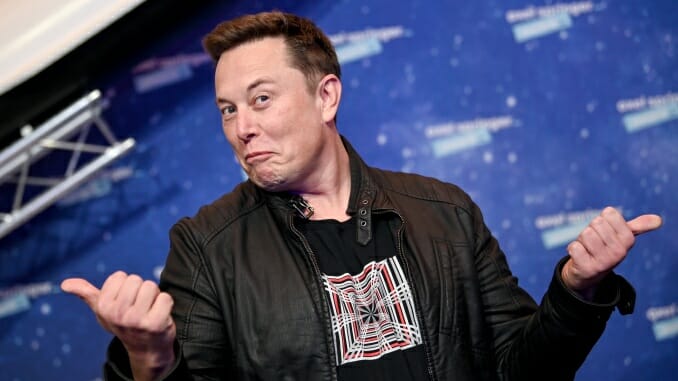Introducing Endless Mode: A New Games & Anime Site from Paste
Elon Musk’s purchase of Twitter is closer to being real.
The social media company announced Monday that it agreed to the Tesla CEO’s offer to acquire the platform for $54.20 per share, making the sum of the purchase roughly $44 billion, and make Twitter a privately owned company.
Twitter’s decision to sell comes after a whirlwind month that began April 1 when Musk publicly disclosed his purchase of 9.2% of shares in the company, running afoul of securities law in the process. Musk later declined a position on Twitter’s board of directors before announcing his offer to buy Twitter outright in what he deemed as an effort to preserve free speech on the platform.
The Twitter board initially responded to Musk’s offer by enacting a limited duration shareholders’ rights plan, commonly known as a “poison pill,” aimed at making Musk’s purchase of the company more financially difficult. But it appears the board reconsidered Musk’s offer over the weekend, with the purchase being split between $25.5 billion in loans and $21 billion in “equity financing” provided by Musk himself.
According to The Washington Post, Musk and Twitter board members met and negotiated the deal into the early hours of Monday morning. Much of the focus of those talks fixed squarely on Musk’s ability to finance the purchase, a question that has been raised consistently since he made the offer a little over a week ago. Despite having a net worth of $259 billion according to the Bloomberg Billionaires Index, a large amount of his wealth is held in stock, meaning he may have to sell Tesla shares or borrow against them in order to secure the $21 billion in personal “equity financing” needed to complete the deal as outlined in Twitter’s statement.
Experts have consistently pointed to the potential financial harm Tesla shareholders face should Musk’s quest to purchase Twitter come to fruition. “You know whose stock goes down if this deal were to somehow go through and he would raise money against Tesla shares? Tesla’s stock would tank,” said NYU professor and Pivot podcast co-host Scott Galloway earlier this month. Tesla itself pointed to the possibility in its annual filing saying that its stock price could “decline” if Musk was forced to sell a portion of his Tesla shares to finance the Twitter purchase.
Musk centered his desire to acquire Twitter as a means to preserve free speech on the platform. He reiterated his belief that Twitter is “the digital town square where matters vital to the future of humanity are debated,” even though the platform lags behind competitors like Facebook, Instagram, TikTok and even far less discussed options like Snapchat and Pinterest in monthly active users.
Worries about how Musk could influence and alter Twitter’s content moderation policies have been the major by-product of his constant comments regarding free speech preservation on the platform. He stated his belief that Twitter’s policies regulating speech should follow the laws of the countries in which it operates and little more. Twitter has increasingly cracked down on misinformation and hate speech to varying degrees of effectiveness in recent years, but Musk’s view of such regulations may likely result in those rules being rolled back in nations with less stringent speech statutes.
Musk also expressed his desire to rid the platform of “spam bots” and make Twitter’s algorithms open-source, two ideas that are popular on paper but are far more difficult and ineffective in practice. Twitter’s algorithm, like other major social media platforms, is so sprawling and complicated that even Twitter engineers can’t always determine how it makes determinations on content population and promotion, much less regular users that accuse Twitter of purposefully deprioritizing conservative content.
His want to eliminate bots on the platform is also interesting considering that a sizeable collection of bot accounts regularly tweet so positively about Tesla that researchers have characterized it as “computerized computational propaganda.”
Before Musk puts his generalized stances into action, the deal must be approved by Twitter shareholders and pass an examination by regulators that have expressed heightened concern about the concentration of power in tech.
